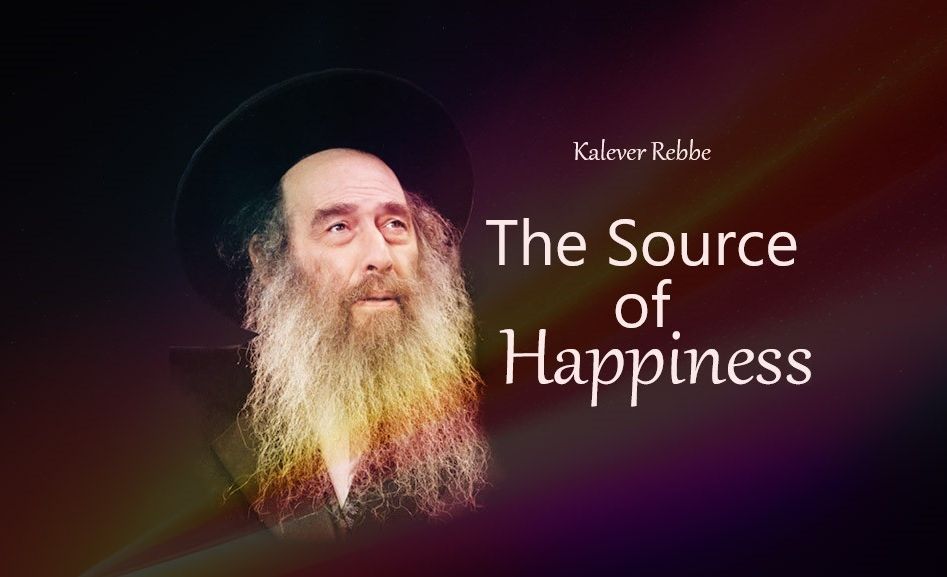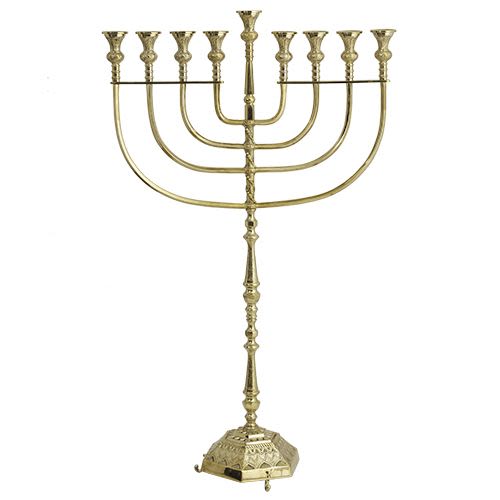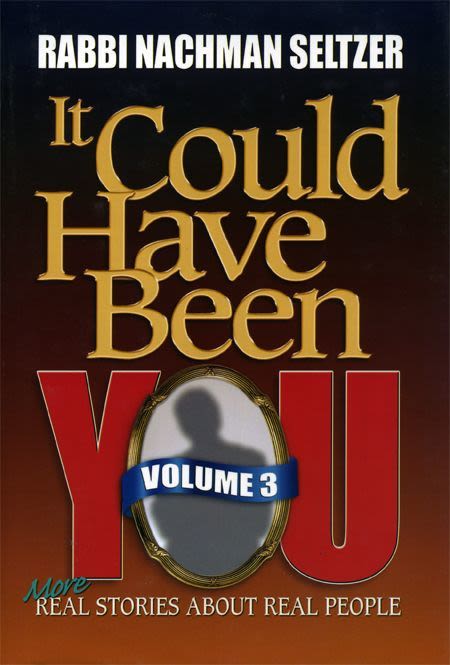
The Power of Shabbat
Want to tap into the source of all the blessings and goodness in this world and the next? The source is directly related to the quality of your Shabbat observance.

“And Avraham returned to his young men, and they arose and went together to Beer Sheva”. (Bereishit 22:19)
Who Is Your Partner
There once was a shopkeeper whose business was failing. Desperate, he decided to seek advice and guidance from the Aleksandr Rebbe, R’ Yisroel Yitzchak, zt”l.
As he was explaining his dire situation, the Rebbe sensed that this shopkeeper kept his store open for business on Shabbat.
When the man finished, the Rebbe said: “I have an offer for you. Allow me to become your 15% partner in the business without requiring any financial investment and I will guarantee you that we will be successful, and you will have a livelihood.”
Aware of the well-known segulah, remedy, that if you partner with a tzaddik, you will be successful because of that tzaddik’s merits, the shopkeeper happily agreed to the arrangement. Immediately they drafted and signed a partner’s agreement.
Afterwards, the Rebbe said: “Now that I am a one-seventh owner, I would like to claim Shabbat as my portion of the business. I will keep the profits earned on that day while you can keep the profits earned from the other six days of the week. Since Shabbat and its profits are mine, I am choosing to close the store on Shabbat.”
Instantly, the shopkeeper understood that the Rebbe wanted him to accept keeping Shabbat and all its laws willingly. And he realized, that if he was prepared to sacrifice one-seventh of his income to partner with the tzaddik, in the hope that his merits would yield success that profit him more than he gave, even more so, he should be willing to sacrifice for the segulah of the mitzvah of Shabbat, which is the source of all blessings.
He committed to closing the store on Shabbat, and he merited to see blessings and financial success from his business.
The Blessings of Shabbat
This is a fundamental idea in Yiddishkeit. Everyone has a responsibility to teach this concept to yidden who currently do not observe Shabbat properly.
Shabbat Kodesh is the source of all the blessings and goodness that flows into this world and into the lives of every yid. Therefore, the brachot one can experience in their life – blessings of wealth and happiness – are directly correlated to the quality of their Shabbat observance. When a person joyfully celebrates and meticulously observes the laws of Shabbat, when they cherish this unique opportunity, when they constantly try to improve the spiritual quality of their Shabbat, those brachot become even more abundant.
However, the opposite can also be true. When someone desecrates and violates Shabbat, all those blessings and goodness cease to flow. They struggle in the void. If someone works on Shabbat, they must understand clearly that, in the end, not a single penny will remain from that income which was earned at the expense of disgracing Shabbat. One way or another, that wealth will be taken away and lost.
These blessings are not limited to materialistic possessions in the physical world, but they also apply to the eternal rewards awaiting him in Olam HaBah, the World to Come. When his soul journeys back to the Upper Realms, he will painfully realize how much was lost by desecrating Shabbat.
The Small Stones
The Apta Rav, zt”l, in Ohev Yisroel, expresses this idea with a beautiful analogy:
There was an extraordinarily wealthy individual who lost his entire fortune. Penniless and destitute, he was forced to travel door-to-door begging for charity. One time, while he was walking through a large forest, he stumbled across a small mountain that was sprinkled with beautiful, small stones. He packed many stones into his satchel, threw it over his back and continued along his way.
However, as he walked, the weight of the stones became too burdensome. To lighten his load, he started tossing out a stone every so often. Eventually, he had discarded most of the stones he had taken.
Eventually, he came out of the forest and reached a small village where he was able to find lodging with a local teacher who was also living in utter poverty. Wanting to compensate his host for the hospitality, food, and shelter, he reached deep into his satchel, but he couldn’t find a single coin. All he had was one small stone, the last remnants of what he had taken from the forest. He apologized profusely explaining that all he had was this stone.
The teacher looked at the stone and said, “Take my advice. That looks valuable. Let’s go to the shop in the village that deals in precious stones and see what it is worth.”
They showed the stone to the broker, and he confirmed the teacher’s suspicions. The stone was valuable indeed! He offered them 1000 gold pieces for it: a small fortune.
When he heard the offer, the pauper fell to the floor, pulling at his hair as he cried out, “I can’t believe that I had the opportunity to collect a number of these stones! I thought they weren’t worth anything, so I only took a few of them. And I even threw those stones away as I walked thinking that they weren’t worth the trouble! They weren’t worth carrying the burden!”
The lesson of this analogy is clear. If, after 120 years, when a person’s neshama, his soul, will stand before the Heavenly Courts, and he sees how invaluable and vast the reward is even for one small mitzvah, he will suffer with regret for all the mitzvot he left behind in the world unfulfilled, unperformed, and neglected. He will realize that he could have spent his life gathering the precious mitzvot that would have increased his eternal reward and he will mourn that lost opportunity.
The Apta Rav uses this analogy to help us understand a bewildering Midrash which says: “Jews do not know the extent of the reward for cleaning their shoes on Erev Shabbat. As it says (Shir HaShirim 7:2), How fair are your feet in sandals, and it says in Yeshayahu (22:12), And the Lord God of Hosts called on that day, for weeping, and for lamenting“.
The explanation of the Midrash is, that when a person will stand before the Heavenly Courts and realize the immense reward earned simply by performing a small, seemingly mundane act like cleaning one’s shoes in preparation for Shabbat, he will weep and lament the lost opportunity to earn even more reward by observing, honoring, and celebrating Shabbat properly and thoroughly. He will mourn the reward that was left behind through his own neglect of Shabbat and the other mitzvot.
Avraham’s Reward
The pasuk is alluding to this idea at the Akeida:
The angel, the messenger of Hashem, arrives and describes to Avraham Avinu the remarkable rewards he merited through his commitment to fulfill Hashem’s Will with the utmost dedication and self-sacrifice, mesirat nefesh. As it says, “And he said, “By Myself have I sworn, says the Lord, that because you have done this thing and you did not withhold your son, your only one… That I will surely bless you, and I will greatly multiply your seed as the stars of the heavens and as the sand that is on the seashore, and your descendants will inherit the cities of their enemies“.(Bereishit 22:16-17).
Then, “And Avraham returned to his young men (נעריו), and they arose and went together to Beer Sheba; and Avraham remained in Beer Sheba”.
The word Sheva alludes to Shabbat which is the seventh day of the week, and the word Beer is a well. Shabbat is the well, the source, from which all brachot flow into this world. The Hebrew word for “young men” can also mean “empty”. When the heard how many blessings are coming in the merit of keeping Mitzvot with self-sacrifice, then even those who lack in mitzvot “went together to Beer Sheba” to sanctify and observe Shabbat meticulously, with mesirat nefesh, and, therefore, merit all the brachot and goodness in this world and the World to Come.
***
The Kalever Rebbe is the seventh Rebbe of the Kaalov Chasidic dynasty, begun by his ancestor who was born to his previously childless parents after receiving a blessing from the Baal Shem Tov zy”a, and later learned under the Maggid of Mezeritch zt”l. The Rebbe has been involved in outreach for more than 30 years, and writes weekly emails on understanding current issues through the Torah. You can sign up at www.kaalov.org.










Tell us what you think!
Thank you for your comment!
It will be published after approval by the Editor.